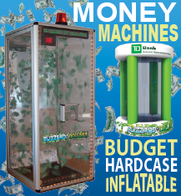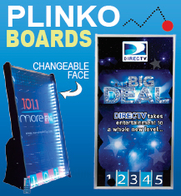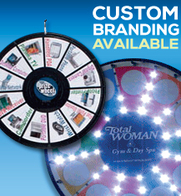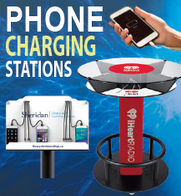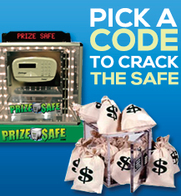 Creating a tagline that draws them instead of repels them.
Creating a tagline that draws them instead of repels them.
As a motivational speaker, my tagline – or my one-sentence attention getter – is my first and maybe even last opportunity to draw a customer in. My market is crowded, my buyers have way too many choices, and the average attention span rivals that of a gnat. So I am challenged with the task of getting their attention – of standing up and sticking out above the noise – when I only have a few minutes. And I would venture to say that you are in the same position.
As sales people, vendors, trade show booth operators, marketers, entrepreneurs, and anyone trying to influence someone else to buy from us – we often only have a couple of minutes to get someone’s attention and keep it. Whether it’s on a website, painted on a banner, or spoken in an elevator, our million dollar tagline must get their interest and keep it – in a moment. So how is yours? Do you have that one winning line that gets their attention and opens the door for you to say more?
So what is your hook? I guess the first question is whether you even have one? I am amazed how often I ask someone what they do and it results in an overblown over wordy epistle that never really lands on anything of interest or value to me, and I find myself wanting to fake a heart attack to get out of the conversation. The hook is that one sentence – okay, maybe one really long sentence – that sums up what you offer them. Notice I didn’t say what you do, but what you offer. There’s a difference. A big one. And many of you don’t seem to know what the difference is. Maybe your company already wrote your hook and it sucks. (Sorry Mom for using the word “sucks.”) Make it your job to rewrite it – to find a better way to say it. You’re on the front lines. You know what your people need to hear. “I’m a financial planner” is not a hook. In fact, it makes me want to run. “I help people make their dreams come true” is a hook.
Is the hook about them? This isn’t about what you do. This is about how what you do or what you offer affects them. The hook is always about them. How you make their life better, their job easier, help them seek pleasure or avoid pain. “I’m a wedding coordinator” is all about you. “I take the stress off brides so they can enjoy their day” is about me.
Is it cool? The whole point of a hook is to hook – to GRAB their attention like a purple sequined pant suit in a church service. This world is noisy and crowded, and your buyer is surrounded by flashing images and creative ways of getting their attention. You have to keep up to get noticed. Are you using their language, or are you still speaking a VCR language to a DVR audience?
Is it relevant? I’m so tired of people telling me how long they’ve been in the business. I don’t care if you’ve been in the business for twenty-five years if you’re still wondering if you should use Facebook. Your credibility is no good if you aren’t relevant to the way I do business right now, or even tomorrow.
Is it short? Hooks are short. There is more power in brevity. The point is to tease, not to vomit. Yes, this is hard. I’m a writer and writing one line power phrases are my biggest challenge. I can write a book faster than I can write the title. But it’s just as important. There’s a reason why my book “Who Hijacked My Fairy Tale?” gets more attention than when I named it “How To Deal With Stress and Change.”
Is it different? Does it use exciting language instead of overused language? Be careful of the words that people have been using for years – words that mean something, but no longer really mean anything. Like “successful” for example. That word is done. Don’t tell me you help me become successful, because that word has been so overused that it doesn’t have power anymore. Find a new word that people haven’t beaten to death. It’s not that you have to come up with something new –just a new way to say the same thing.
Test your hook. How is your hook working? Try it out. Does it make them want to know more? Ask your friends. Not the ones who tell you want you want to hear, but the ones who tell you what you need to hear. Get feedback. If it doesn’t work, try something else.
Don’t take someone else’s hook. You both lose if you do that. Even if you change it a little, it’s still not a good idea. Be creative. Come up with your own idea. Cloning is never the way to getting business.
So there you go – some easy tips on creating a hook that hooks. Happy hooking! (That didn’t sound right. Well, hopefully you know what I mean.)
About the author:
Motivational speaker Kelly Swanson is an award winning author, storyteller and comedian. Kelly teaches audiences how to “Stand Up and Stick Out” in a crowded market – because no one notices normal.








